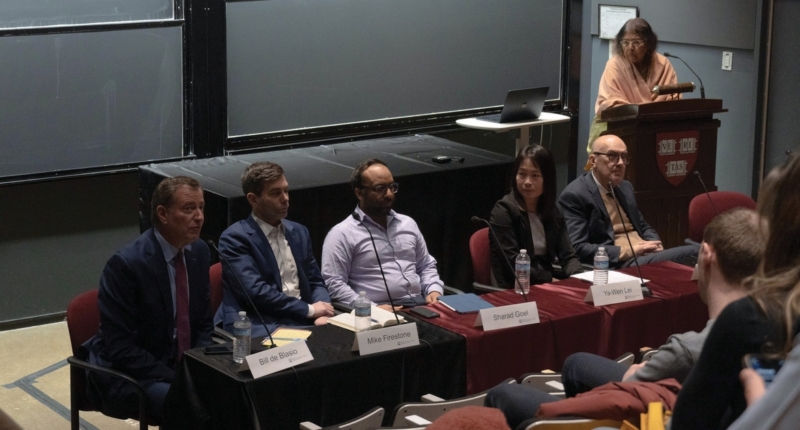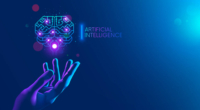Former New York City Mayor, Bill de Blasio, gave a lecture at Harvard Kennedy School’s Program on Science, Technology, and Society, where he discussed the potential negative impacts of artificial intelligence (AI) on cities. He challenged the idea that technological development is “inherently good” and emphasized the need for society to address the false “feeling of inevitability” surrounding AI’s negative impacts. De Blasio suggested several recommendations for government action to address these dangers, including implementing licensing regulations, creating a legal liability structure, introducing product safety requirements, and holding congressional hearings regularly to bring attention to these issues. During the panel discussion, Sharad Goel, a professor at the Kennedy School, highlighted the challenges of technocracy and designing algorithms without consulting people. He described one of his past projects, an app that helps people obtain transportation to go to court. In an interview after the event, Mike B. Firestone, the Boston city administrator, emphasized the need for municipal governments to regulate emerging technologies in a people-centered approach.
Bill de Blasio’s Lecture on AI’s Pitfalls at Harvard Kennedy School
Former New York City Mayor, Bill de Blasio, spoke at Harvard Kennedy School’s Program on Science, Technology, and Society on the impacts of artificial intelligence on cities. He gave his lecture on Tuesday, titled “AI for Cities or Cities for AI: Who Should Decide?” The event was part of the STS’s “Science & Democracy” lecture series, and a panel consisting of various experts in their fields joined him.
De Blasio criticized the lack of public discourse surrounding the negative impacts of AI and challenged the idea that technological development is “inherently good.” He asked whether the problems AI solves outweigh the problems it creates. He mentioned several potential dangers of AI deployment, including the spread of misinformation through deepfakes, adverse effects on education, and the risk of powerful AI falling into the wrong hands.
He suggested several recommendations for government action to address these dangers, including implementing licensing regulations, creating a legal liability structure, introducing product safety requirements, and holding congressional hearings regularly to bring attention to these issues.
De Blasio also emphasized the false “feeling of inevitability” surrounding AI and noted that these negative outcomes are not inevitable, but they require attention and action.
During the panel discussion, Sharad Goel, a professor at the Kennedy School, spoke about the challenges of accounting for inherent bias in algorithms while optimizing for efficiency.
In conclusion, Bill de Blasio’s lecture was an insightful discussion of the potential pitfalls of AI and the need for society to address them. The event’s panel included experts from various fields, who offered their perspectives on the issue. The lecture emphasized the importance of acknowledging the potential negative impacts of AI and taking action to prevent them, rather than blindly accepting technological progress.
Challenges of Technocracy and Need for Municipal Regulation of Emerging Technologies
During the panel discussion, Sharad Goel, a professor at the Kennedy School, described one of his past projects, an app that helps people obtain transportation to go to court. He pointed out the difficulty of ensuring even representation across different neighborhoods while maximizing the number of people helped.
Goel highlighted the challenges of technocracy and designing algorithms without consulting people, which can result in vast variances.
In an interview after the event, Mike B. Firestone, the Boston city administrator, emphasized the need for municipal governments to regulate emerging technologies in a people-centered approach. He stated that while Boston is a place for great innovation, their job is to look out for residents.
Don’t miss interesting posts on Famousbio









